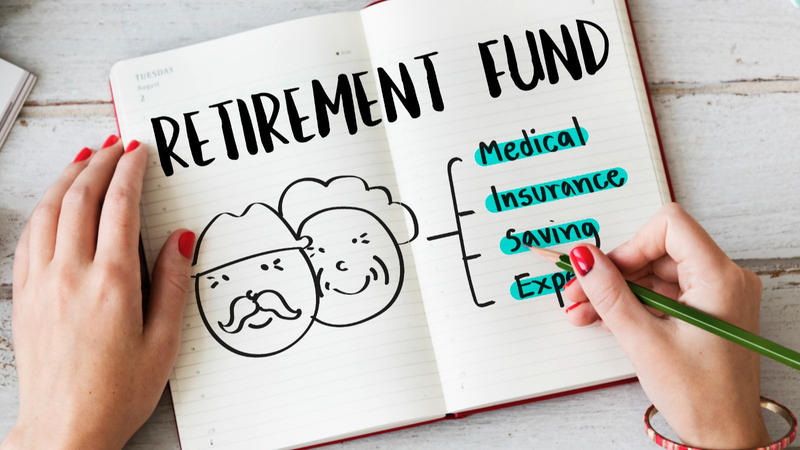Published 18:36 IST, November 27th 2024
You’re Already Late! 3 Strong Pillars To Plan Your Retirement
Here are three key strategies to ensure a secure retirement: smart investments, comprehensive insurance, and a solid emergency fund.

Plan your retirement now: The clock is ticking on your retirement planning. While it might feel like there’s plenty of time to think about your golden years, the reality is quite different. Financial experts stress the need to start retirement planning as early as your first paycheck.
"Individuals in India should start planning for retirement from their first paycheck, typically they can start from their early to mid-20s. Starting early allows more time for savings to grow through the power of compounding and helps build a substantial retirement corpus," said Krishan Mishra, CEO, Financial Planning Standards Board India told Republic Money.
For example, consider two individuals, Arjun and Priya. Both aim to retire at 60. Arjun begins saving Rs 5,000 monthly at 25, while Priya delays until she’s 35 but saves Rs 10,000 monthly. By the time they turn 60, assuming an annual return of 8 per cent, Arjun’s corpus is Rs 1.5 crore, while Priya’s is only Rs 1.2 crore, despite saving twice as much each month.
"Early planning also ensures preparedness for unforeseen circumstances, or financial challenges, and provides flexibility to adjust contributions over time," he added.
Pillar 1: Strategic investments
Strategic investment is not only about starting early but also about making the right choices with your money. In your 20s and 30s, focusing on high-growth assets like equities can help maximise long-term returns, while safer options such as bonds and fixed deposits become more suitable as you get closer to retirement, say experts.
Alongside traditional savings tools like EPF and NPS, options like PPF offer tax efficiency, mutual funds provide market-linked growth, and real estate can generate reliable passive income, creating a well-rounded portfolio.
Pillar 2: Comprehensive insurance
While investments help grow your wealth, insurance protects it. Many overlook this pillar, assuming their savings can cover unexpected expenses. However, unexpected emergencies, especially in healthcare, can derail even the best financial plans.
For example, imagine a person named Ravi, who, at 52, had built a decent retirement fund but lacked adequate health insurance.
A sudden heart surgery wiped out a major portion of his savings, forcing him to downsize his retirement goals. If Ravi had invested in comprehensive health insurance, he could have avoided this setback.
Health insurance is a critical component of retirement planning, especially as healthcare costs rise with age. Before selecting a policy, check for adequate coverage for hospitalisation, critical illnesses, and medical treatments that are likely to increase in retirement. Look for plans with lifetime renewability, a wide network of hospitals, and sufficient coverage limits. Additionally, ensure the policy includes pre- and post-hospitalisation expenses and covers emerging health risks.
Life insurance, particularly a term plan, should be a priority to protect your family’s financial security. A term plan is an affordable way to ensure your loved ones don’t dip into your retirement savings in case of your untimely death. When choosing a term plan, consider the policy’s coverage amount, which should be at least 10–15 times your annual income, and ensure that premiums remain affordable.
Annuities are another essential tool for retirement. They provide a predictable, regular income stream after retirement, helping you avoid outliving your savings. When considering annuities, pay attention to factors such as payout frequency, whether the annuity is fixed or variable, and whether it includes any riders like inflation protection. Additionally, check the credibility of the insurance company offering the annuity and understand the terms and conditions before committing.
Pillar 3: Emergency funds
Whether it’s a sudden medical expense, a home repair, or a family crisis, an emergency fund is the solution. This is more important when retirement approaches because dipping into your savings at the wrong time could disrupt your plans.
Experts recommend that your emergency fund should cover 6–12 months of living expenses and be kept in liquid assets like a savings account or a short-term fixed deposit.
What happens if you start late?
Starting late doesn’t mean you can’t retire comfortably, it just requires a more aggressive approach.
For instance, if you’re in your 40s and haven’t yet begun, you’ll need to save a larger percentage of your income, possibly 25 per cent or more, to make up for lost time. Scaling up your contributions, cutting unnecessary expenses, and parking money in higher-risk, higher-return avenues like equity mutual funds can help bridge the gap.
Dont rely on one source
Putting all your retirement eggs in one basket, such as EPF or NPS, is risky. Market fluctuations, inflation, or even changes in government policies could affect your financial stability. Keep a diversified approach that includes mutual funds, rental income, and even side hustles during your working years.
How much should you save?
Experts suggest a benchmark to have 10–15 times your annual income saved by retirement.
"If your expenses are 70 per cent of your income, this corpus should last through your golden years. If you’re in your 20s, save 7–10 per cent of your income, and if you start in your 40s, be prepared to save at least 25 per cent," Mishra added.
"Adjust your savings rate as your income grows, and review your plan every few years to ensure it aligns with your evolving goals," he further said.
Disclaimer:
The views expressed in this article are purely informational and Republic Media Network does not vouch for, promote or endorse any opinions stated by any third party. Stock market and Mutual Fund investments are subject to market risks and readers are advised to seek expert advice before investing in stocks, derivatives and Mutual Funds
Updated 17:14 IST, November 28th 2024